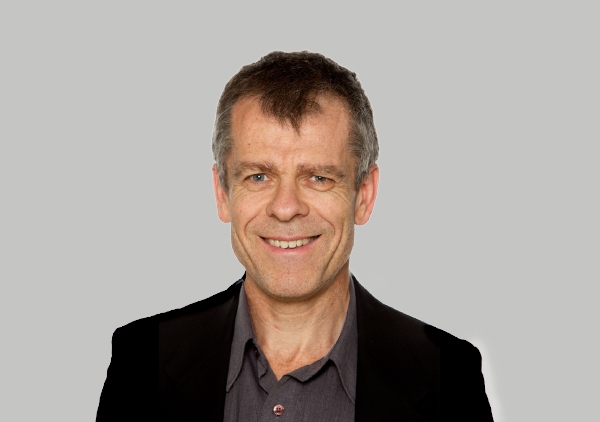RECHARGE: boosting the wellbeing of healthcare workers
Burnout, anxiety and depression skyrocketed amongst frontline health staff during and after the COVID pandemic. In response, trauma and disaster expert Professor Richard Bryant, led a team at the University of NSW, funded by NSW Health, to develop a video conferencing program that is still being utilised to boost the mental wellbeing of healthcare workers.
The COVID-19 pandemic shook the world’s health systems to the core, with healthcare workers taking on additional hours, risks and rapidly changing COVID protection protocols as infections peaked. Studies show surging hospitalisations, excessive workloads, and fear of infection took a heavy toll on the mental health of workers in the Australian health system. At the height of the pandemic, at least a quarter of healthcare workers experienced anxiety, depression and burnout symptoms, found a report by the World Health Organization (WHO).
“Healthcare workers were at the frontline and were being hardest hit,” agrees Richard Bryant, Scientia Professor of Psychology at the University of New South Wales (UNSW) and an internationally revered expert in the treatment of trauma triggered by disasters. “During the COVID pandemic, the workload went through the roof. So, we could see there was an obvious need to develop a program that could support staff and help them better cope.”

Trauma triage
Bryant, who is also Director of the UNSW Traumatic Stress Clinic, is renowned worldwide, for creating cutting-edge mental health intervention strategies and programs for individuals and first responders who have experienced disasters, traumatic circumstances and complicated grief. His counselling approaches and treatment guidelines have been used to support people during and after large-scale adverse events, including the 9/11 New York terrorist attacks, the 2004 Asian tsunami, Hurricane Katrina and Victoria’s Black Saturday bushfires. Bryant has also been globally recognised for developing a video conferencing mental health program that has successfully reduced trauma symptoms in first responders to disasters such as bushfires and floods.
Flashback to the COVID-19 pandemic and Bryant quickly recognised the enormous need for health workers to receive greater support to carry their stressful load. He subsequently led a team to produce a world first early intervention mental health program to support healthcare staff at the COVID frontline.
The earlier that targeted mental health interventions can be provided for workers after traumatic events, the more rapidly symptoms of anxiety, depression and conditions such as Post Traumatic Stress Disorder (PTSD) can be treated, resulting in better mental health outcomes. Triggered by trauma, PTSD can cause chronic symptoms such as severe anxiety, fear and hypervigilance, due to an individual’s ongoing sense of danger and intrusive memories, flashbacks and nightmares. “Though we think of PTSD as mostly affecting people who have been in extreme situations such as war zones and natural disasters, it can also impact people in a much wider range of situations, such as pandemics,” says Bryant. “In fact, studies in Australia indicate that PTSD is nearly as prevalent as depression. If left untreated, it can be debilitating.”
Managing acute stress at the COVID frontline
Enter the four-session RECHARGE program. This was adapted from a previous video conferencing intervention that Bryant and his team had co-designed with the World Health Organisation, to help people in low- and middle-income countries cope with adversity. Using similar program scaffolding, RECHARGE was then developed to provide front-line health workers with evidence-based strategies to manage acute stress. The psychoeducation program teaches problem-solving skills as well as techniques for managing anxiety and distress and reducing arousal and behavioural activation. It also provides guidance in how to attune to the positive aspects of meaningful activities, such as time spent in nature and with loved ones, in order toto enhance those activities and fully savour them.
During the RECHARGE program, health workers also access clinicians through on-line sessions. “Delivering mental health support to healthcare workers over video conferencing has many benefits, particularly for those reluctant to seek support in a professional context, Bryant explains. “If a healthcare worker puts their hand up and says they’re stressed, that can compromise their position in the department. That’s a huge barrier to staff actually getting help professionally.”
Prior to developing RECHARGE, Bryant had developed and piloted a video conferencing COVID-19 program to help Australians in NSW better cope with symptoms of anxiety and depression during lockdown. The project was awarded funding under the NSW Health COVID-19 Research Grants scheme, which supported initiatives that contributed to the state’s pandemic response in areas such as COVID policy and programs, clinical care, community and health outcomes and economic benefits related to improved health outcomes and increased productivity. Further adaptations were then made by Bryant and his colleagues to tailor their video conferencing approach to reduce psychological distress in healthcare staff.

Recharging the wellbeing of health workers
In late 2020, Bryant’s team trialled the RECHARGE program with healthcare workers in Zurich, Switzerland, which had the world’s highest infection rate in March that year. The hour-long online sessions covered topics such as common responses to work stress during the pandemic, strategies for managing worry, anxiety and stressful situations as they arise, as well as tips on how to promote connection and self-care through more fully engaging in meaningful life activities. “The best support for mental health is not one-size fits all, but recognises the different contributors to mental wellbeing, which include biological, cognitive, emotional, behavioural and social factors,” Bryant points out. Exploration and discussion of these contributors was made possible through the weekly one-on-one sessions that participants accessed with a psychologist, doctor or nurse over the four weeks.
As a control, one group of healthcare workers included in the study were randomly assigned to adopt a series of web-based stress-management strategies. At the beginning of the trial, all participants screened positive for psychological distress, with over three-quarters showing signs of an anxiety disorder and around one-third meeting the cut-off for depression. After two months, healthcare workers who took part in the RECHARGE sessions were less distressed than those who accessed the web resources. When compared with the support option of reading through stress relief materials online, talking with a psychologist, doctor or nurse during a video conferencing call led to a greater reduction in worry, burnout and distress.
Mental health boosters
As we look forward, Bryant reminds us that follow-up is critical to maintaining the mental wellbeing of the healthcare workforce. “There needs to be something in place to give people mental health ‘boosters’, just like we do with vaccines,” he explains. The team is currently trialling these shorter, booster sessions, along with app-based support strategies, so that staff in health systems can continue building their stress management skills.
“It’s about giving healthcare workers strategies to strengthen their abilities and capacity to cope with what is often a very stressful job,” says Bryant. “If we can do that, and remove barriers to staff seeking mental health support, by providing them with highly accessible and confidential programs, they will continue to enjoy their jobs and be able to continue to work in them.”
Updated 2 years ago